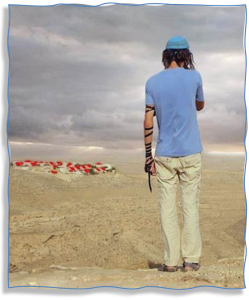Date/Time
Date(s) - 11/13/2022
3:00 pm - 4:00 pm
Categories
We are cosponsoring this film discussion—watch the film between now and next Sunday, Nov. 13, then join the discussion on zoom. Here is information from the Voices from the Holy Land’s flyer:
Watch the film for free at your convenience; Join the Q&A Discussion
- Shimon Dotan: Filmmaker, university instructor on Political Cinema and Film Directing
- Rabbi Yaakov Shapiro: Scholar, author, Board Director at International Council for Middle East Studies
- Lara Friedman (moderator): President, Foundation for Middle East Peace

A documentary film that combines history and headlines. . . .
THE SETTLERS is the first comprehensive look at Israel’s continued construction of settlements in the West Bank, which is at the heart of the Israeli-Palestinian conflict. Radicals, idealists, messianic fanatics, true believers and political opportunists, living on the fault lines of an age-old conflict, come face-to-face with history. Today, the settlers threaten to destroy what little peace remains in the Middle East.
Watch the Trailer at this link.
Shimon Dotan is an award-winning filmmaker of multiple narrative and documentary films. Born in Romania and raised in Israel, Shimon is a Fellow at the New York Institute of the Humanities and a recipient of a Guggenheim Fellowship and a Cullman Fellowship for scholars and writers at the New York Public Library. Shimon’s films have received numerous awards at festivals in the U.S., Germany, and Israel. He’s taught filmmaking and film studies at Tel Aviv University in Israel and at Concordia University in Montreal; he is presently teaching Political Cinema at New York University and Film Directing at the New School University in New York.
Rabbi Yaakov Shapiro is an international speaker, author, and pulpit rabbi for more than 30 years, now emeritus. Rabbi Shapiro currently serves on the Board of Directors of the International Council for Middle East Studies CMES.net). His most recent work, The Empty Wagon: Zionism’s Journey from Identity Crisis to Identity Theft (2018), a 1,381-page treatise on the incompatibility between Judaism and Zionism, is considered the most comprehensive work written on the subject. His videos on Zionism have been seen by millions. His 7-minute critique of former President Trump’s recognition of Jerusalem as the capital of Israel has been viewed over 2 million times.
Lara Friedman (Moderator) is the President of the Foundation for Middle East Peace (FMEP). She is a leading authority on U.S. foreign policy in the Middle East, with expertise on Israel/Palestine and the role of the U.S. Congress. Lara is a Contributing Writer at Jewish Currents and a non-resident fellow at the U.S./Middle East Project. Lara has served as the Director of Policy and Government Relations at Americans for Peace Now, and as a U.S. Foreign Service Officer in Jerusalem, Washington, Tunis and Beirut. She holds a B.A. from the University of Arizona and a Master’s degree from Georgetown’s School of Foreign Service.



I thought that the film was extremely informative and helped me to understand the history of settlements and the strategic manner in which these settlements were placed. I gained an understanding of how the vigilantes and settlers have unofficially been given the green light to continue to spread out onto the occupied territories and create violence against the “Arabs”. I was shocked by the blatant racism of some of the settlers, but I suppose that is one relieves oneself of any conscience by thinking that those that you are oppressing are lesser humans.
The film is powerful. It focuses narrowly on the settlers, which is effective. You see their sense of entitlement, their racism, their violence. But the narrow focus gives the impression that Rabin and the Labor Party opposed the settlements and that the settlements are somehow a corruption of the Zionist project.
In the discussion, the filmmaker, Shimon Dotan, said straightforwardly that he is a Zionist. He made a good film, from a limited Zionist perspective.
Note: early in the chat, a man stated that “settler” was the wrong word, and “colonizer” is the right word. I see his point. But policing language, in the beginning of a discussion about a film called “The Settlers,” can discourage people from commenting freely.
I appreciate the attempt to humanize the settlers, while also showing some of the negative consequences of their zionist ideologies in this film, but I think that the film is problematic in many ways that obfuscate the Palestinians’ oppression and struggle for liberation. For starters, the occupation of Palestinian land began with the Nakba in 1948, when the new Israeli government created laws that prevented Palestinians from returning to their own villages and made them permanent refugees while invited Jews from all over the world to settle on the lands that they stole from the Palestinians. The self-rightiousness of the Israelis in the film that don’t admit to their own status as settlers makes them not believable witnesses to the injustices. Furthermore, since the production of this film, the role of settlers in Israel’s government is not adequately address. They are at the center of power, not the margins. Many are advocating complete expulsion of Palestinians and worship Dr. Baruch Goldstein, the settler leader that killed 29 Palestinian men and boys in the Ibrihimi mosque. In addition, I think it is critical to address how US institutions, public and private, are funding the expansion and maintenance of settlements.